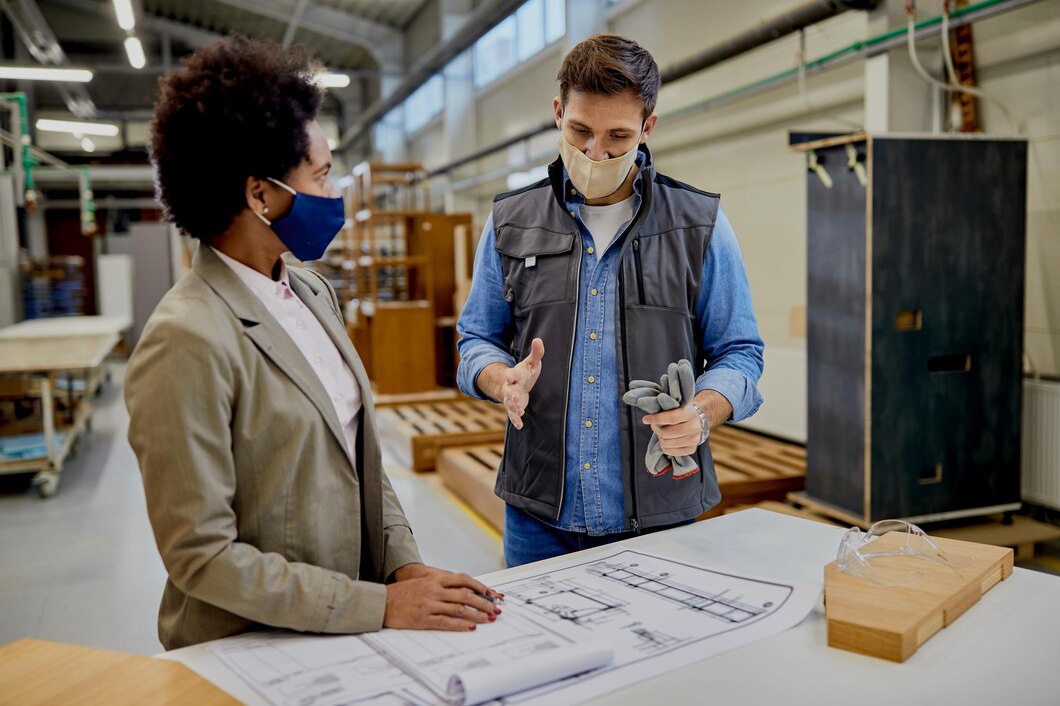Introduction to Fabrikanlage
A Fabrikanlage is a crucial element in the manufacturing and production industry. It refers to the physical infrastructure and facilities where goods are produced, assembled, or processed. These facilities play a pivotal role in ensuring efficient production processes, maintaining quality standards, and supporting the economic growth of a region. The importance of fabrikanlagen has evolved over time, with historical developments influencing modern-day manufacturing practices.
Key Components of a Fabrikanlage
A well-functioning fabrikanlage comprises several key components:
- Machinery: The backbone of any fabrikanlage, machinery includes all the tools and equipment used in production.
- Layout: The arrangement of machinery, workstations, and storage areas to ensure smooth workflow and efficiency.
- Materials Handling: Systems and processes for moving raw materials, components, and finished goods within the facility.
Types of Fabrikanlagen
Different types of fabrikanlagen serve various industrial purposes:
- Manufacturing: Facilities focused on converting raw materials into finished products.
- Assembly: Where components are put together to create final products.
- Processing: Plants that handle the transformation of raw materials into intermediate goods.
Site Selection for Fabrikanlagen
Choosing the right location for a fabrikanlage is critical. Key factors include:
- Location: Proximity to suppliers, customers, and transportation networks.
- Accessibility: Ease of access for employees, suppliers, and logistics.
- Environmental Impact: Assessing the potential environmental effects and ensuring compliance with regulations.
Design Principles of Fabrikanlagen
Effective design principles ensure that fabrikanlagen are:
- Efficient: Optimizing processes to minimize waste and maximize productivity.
- Flexible: Able to adapt to changes in production demands and technology.
- Scalable: Designed for future expansion or modifications.
Construction Process of a Fabrikanlage
Building a fabrikanlage involves several stages:
- Planning: Defining objectives, timelines, and budgets.
- Permits: Securing necessary approvals and permits from regulatory bodies.
- Building: Actual construction, including laying foundations, erecting structures, and installing equipment.
Equipment and Technology in Fabrikanlagen
Modern fabrikanlagen leverage advanced technologies:
- Automation: Using automated systems to increase efficiency and reduce human error.
- Robotics: Implementing robots for tasks ranging from assembly to material handling.
- IoT: Integrating Internet of Things devices for real-time monitoring and data collection.
Workforce Management in Fabrikanlagen
Effective workforce management is essential for productivity:
- Training: Providing employees with the necessary skills and knowledge.
- Safety: Ensuring a safe working environment through training and safety measures.
- Productivity: Implementing strategies to maintain high levels of employee productivity.
Environmental Considerations in Fabrikanlagen
Sustainability is increasingly important in fabrikanlagen:
- Sustainability: Adopting eco-friendly practices and technologies.
- Waste Management: Efficient handling and disposal of waste materials.
- Energy Efficiency: Utilizing energy-efficient systems to reduce consumption.
Safety Standards and Regulations
Compliance with safety standards is mandatory:
- Compliance: Adhering to industry regulations and standards.
- Best Practices: Implementing proven safety practices and protocols.
- Emergency Procedures: Preparing for and managing emergency situations.
Cost Management in Fabrikanlagen
Managing costs effectively ensures profitability:
- Budgeting: Detailed planning and allocation of financial resources.
- Cost Reduction Strategies: Identifying and implementing measures to reduce costs.
- Financial Planning: Long-term financial strategies for sustainability.
Supply Chain Integration
Integrating the supply chain is vital for smooth operations:
- Logistics: Efficient movement of materials and products.
- Inventory Management: Keeping optimal inventory levels to meet production needs.
- Supplier Coordination: Building strong relationships with suppliers.
Quality Control in Fabrikanlagen
Maintaining high-quality standards is non-negotiable:
- Standards: Adhering to industry quality standards.
- Inspection: Regular inspection of processes and products.
- Continuous Improvement: Implementing strategies for ongoing improvement.
Maintenance and Upkeep
Regular maintenance ensures smooth operations:
- Preventive Maintenance: Scheduled maintenance to prevent breakdowns.
- Repairs: Timely repair of equipment and machinery.
- Downtime Reduction: Strategies to minimize downtime.
Future Trends in Fabrikanlagen
Staying ahead of trends ensures competitiveness:
- Industry 4.0: Adoption of advanced manufacturing technologies.
- Smart Factories: Utilizing interconnected systems and smart technology.
- Sustainable Practices: Focusing on sustainability and eco-friendly practices.
Case Studies of Successful Fabrikanlagen
Learning from real-world examples:
- Real-world Examples: Analyzing successful fabrikanlagen.
- Best Practices: Identifying best practices for implementation.
- Lessons Learned: Learning from challenges faced and solutions implemented.
Challenges in Fabrikanlagen Management
Addressing common challenges:
- Common Issues: Identifying and understanding common problems.
- Solutions: Implementing effective solutions to overcome challenges.
- Risk Management: Strategies to manage and mitigate risks.
Role of Digitalization in Modern Fabrikanlagen
Digitalization transforms fabrikanlagen:
- Digital Twins: Creating digital replicas of physical assets.
- Data Analytics: Utilizing data for informed decision-making.
- Cloud Computing: Leveraging cloud technology for efficiency.
Implementing Lean Manufacturing in Fabrikanlagen
Lean manufacturing principles enhance efficiency:
- Principles: Understanding the core principles of lean manufacturing.
- Techniques: Implementing lean techniques in production.
- Benefits: Realizing the benefits of lean manufacturing.
Enhancing Productivity in Fabrikanlagen
Strategies to boost productivity:
- Process Optimization: Streamlining processes for better efficiency.
- Employee Engagement: Encouraging employee involvement and motivation.
- Technology Integration: Leveraging technology to improve productivity.
Customization and Flexibility in Fabrikanlagen
Adapting to market needs:
- Adapting to Market Changes: Staying flexible to meet changing demands.
- Custom Orders: Handling customized production orders.
- **Modular

